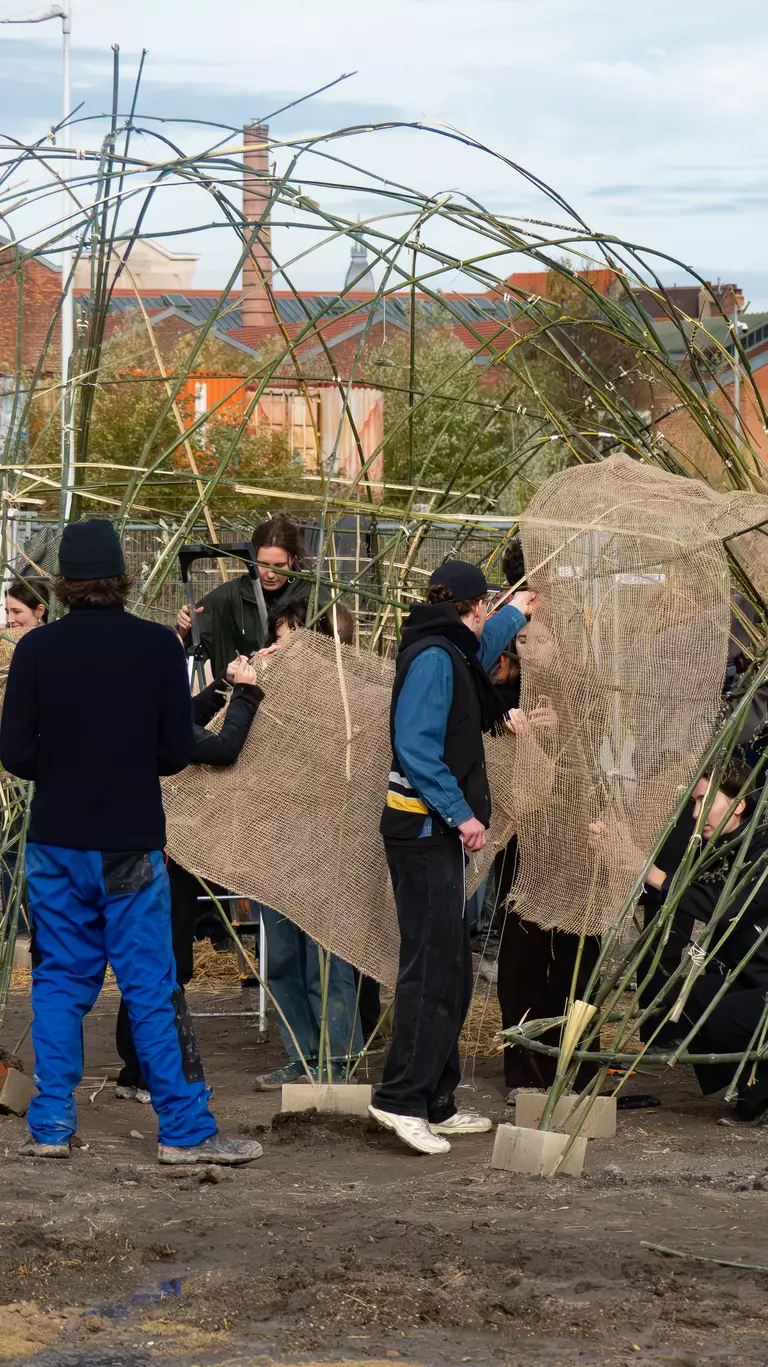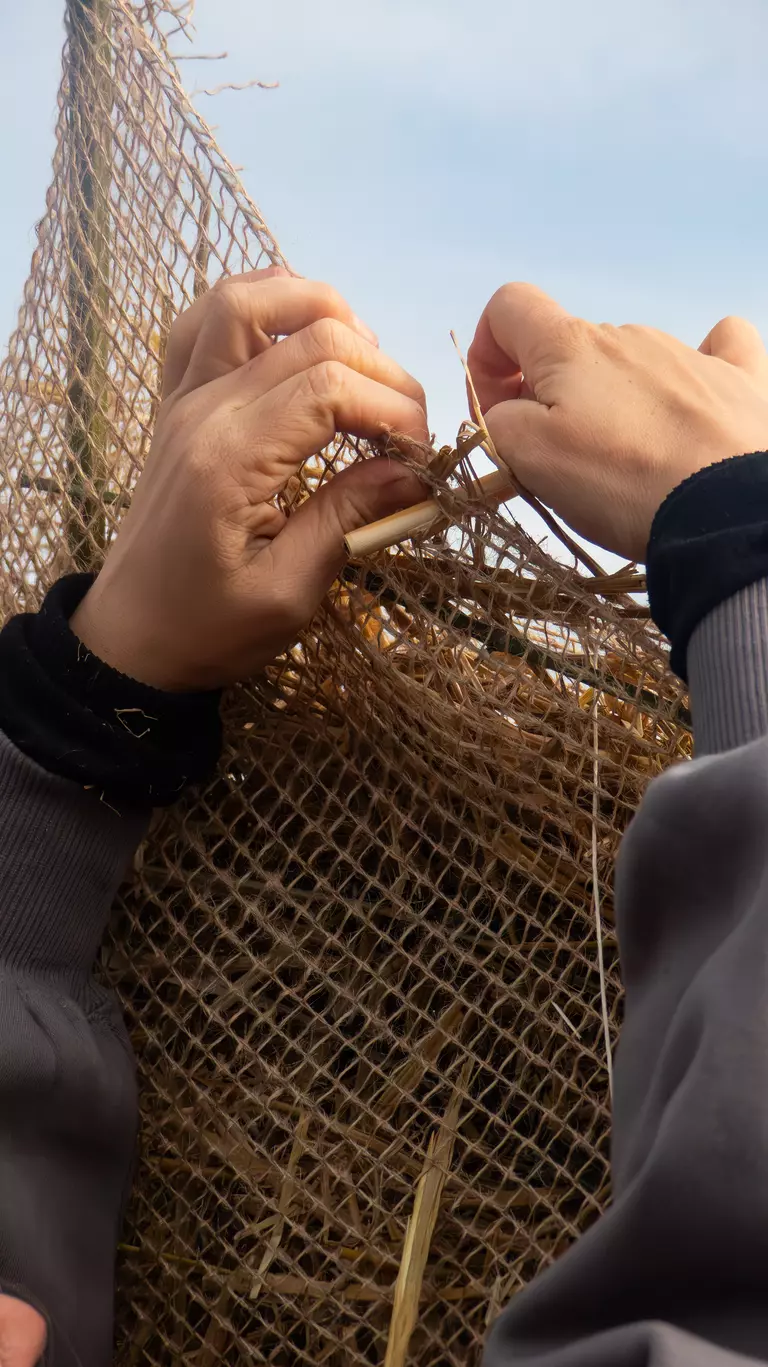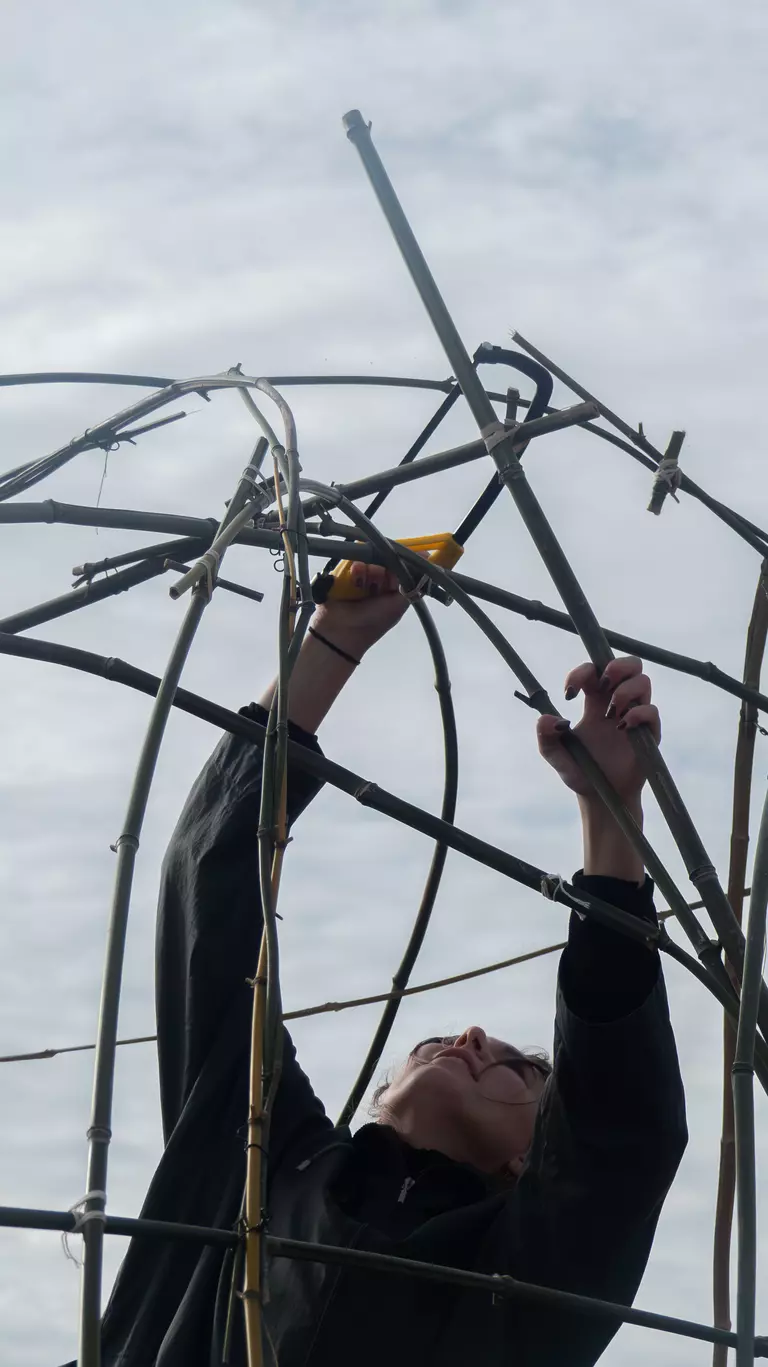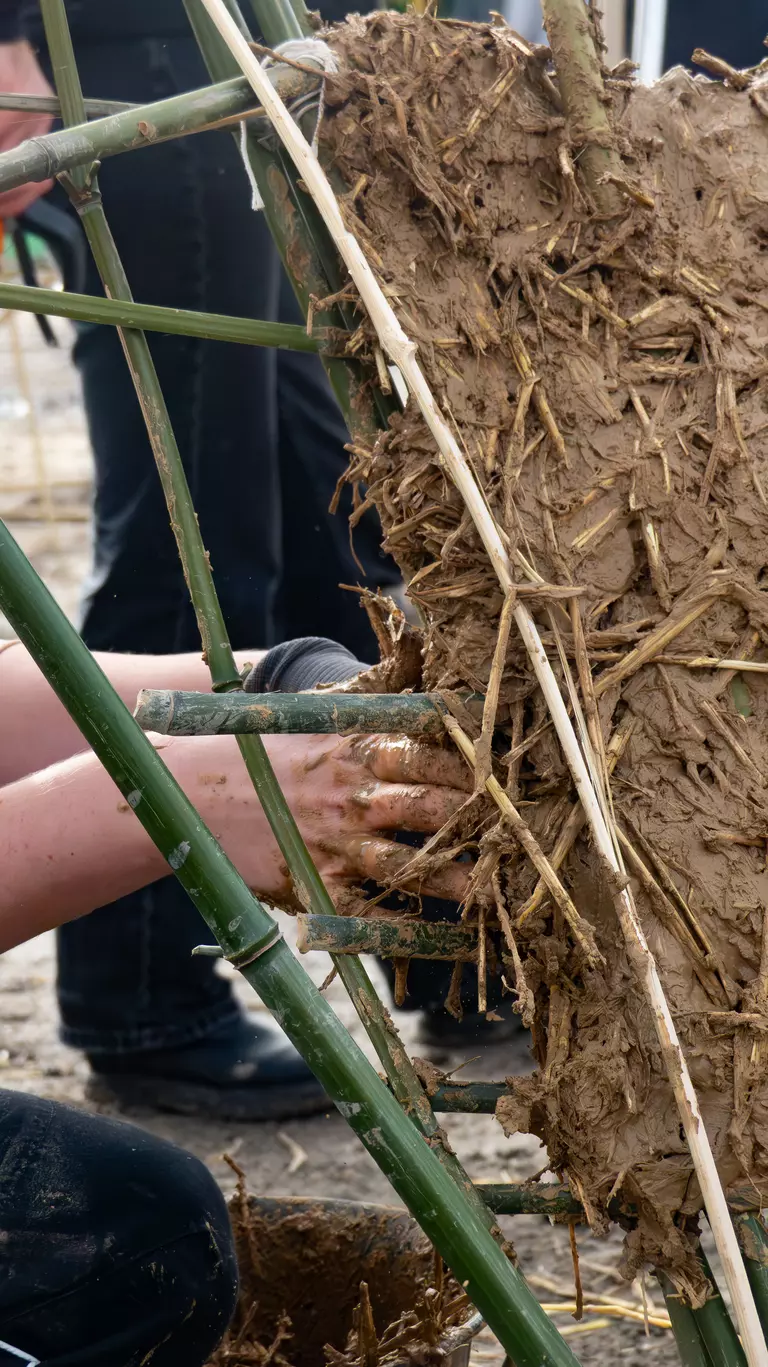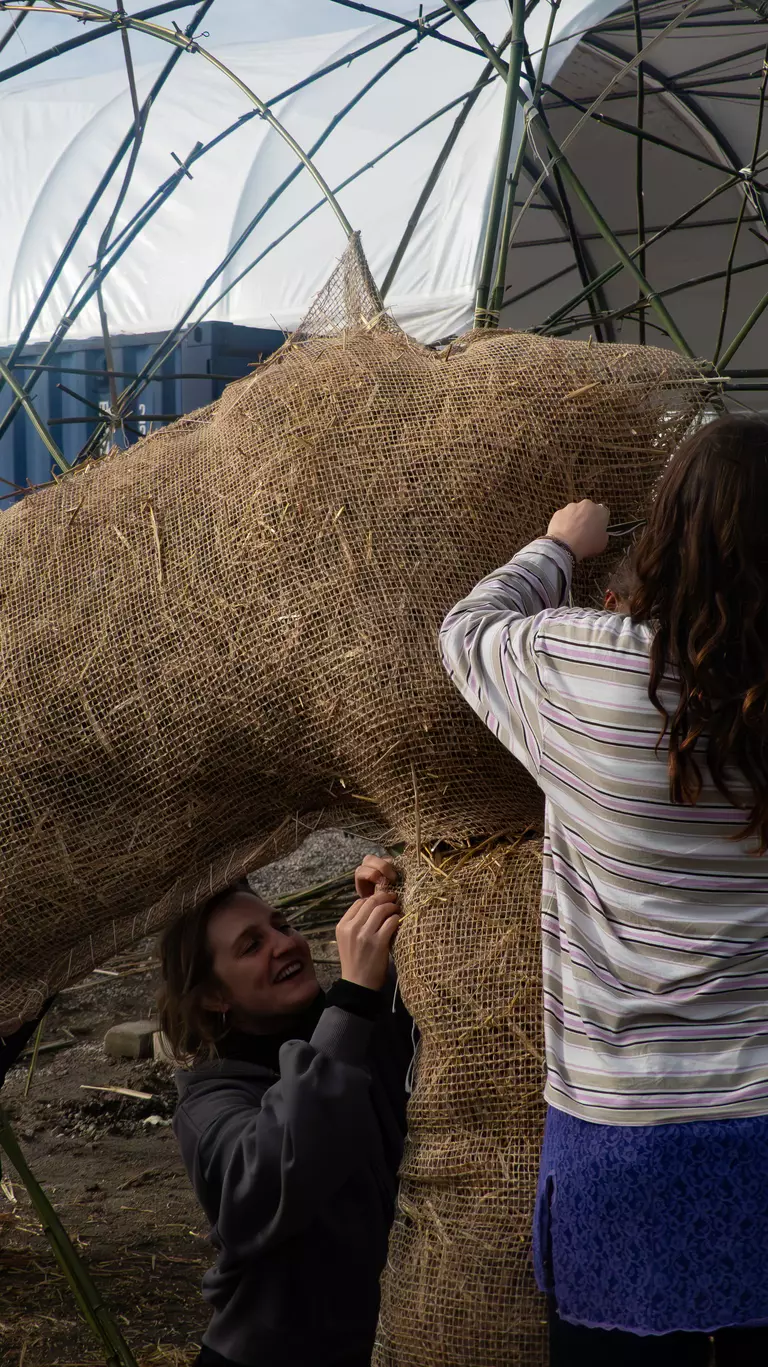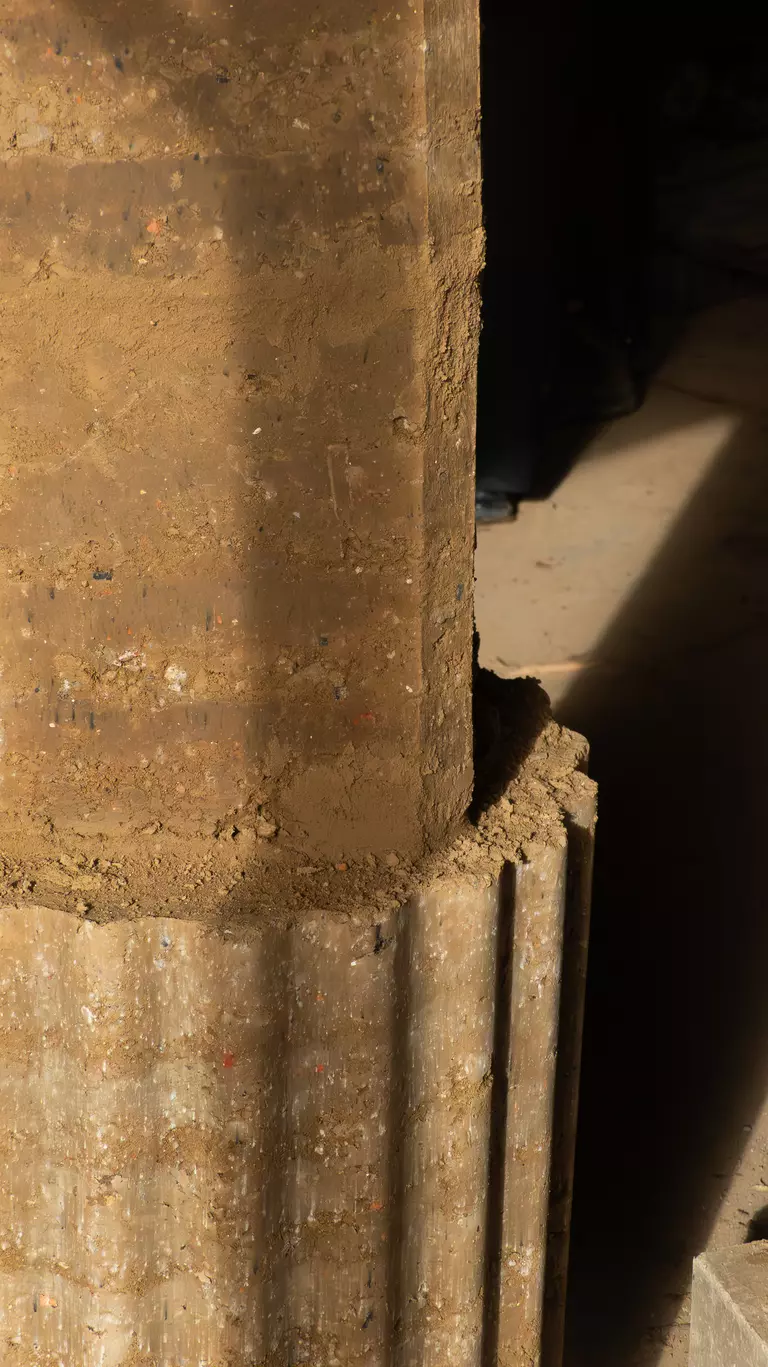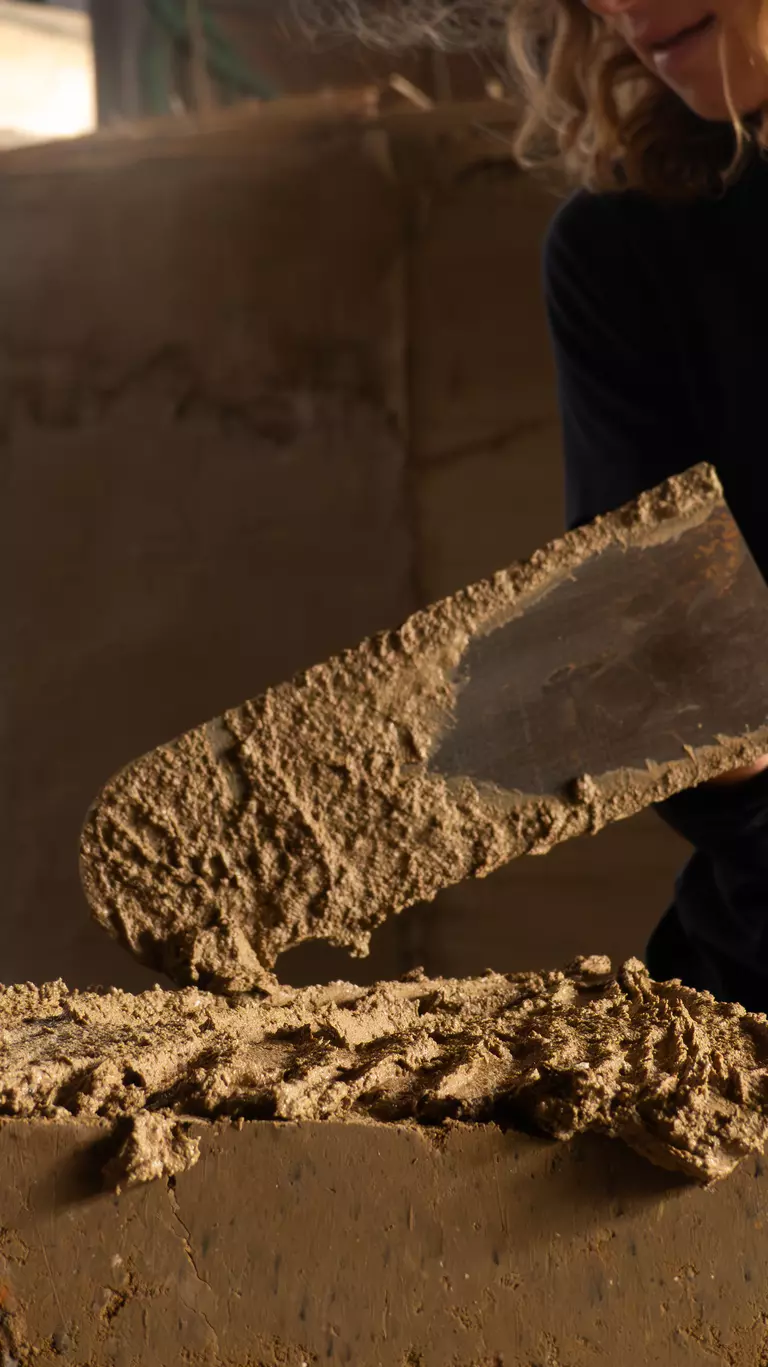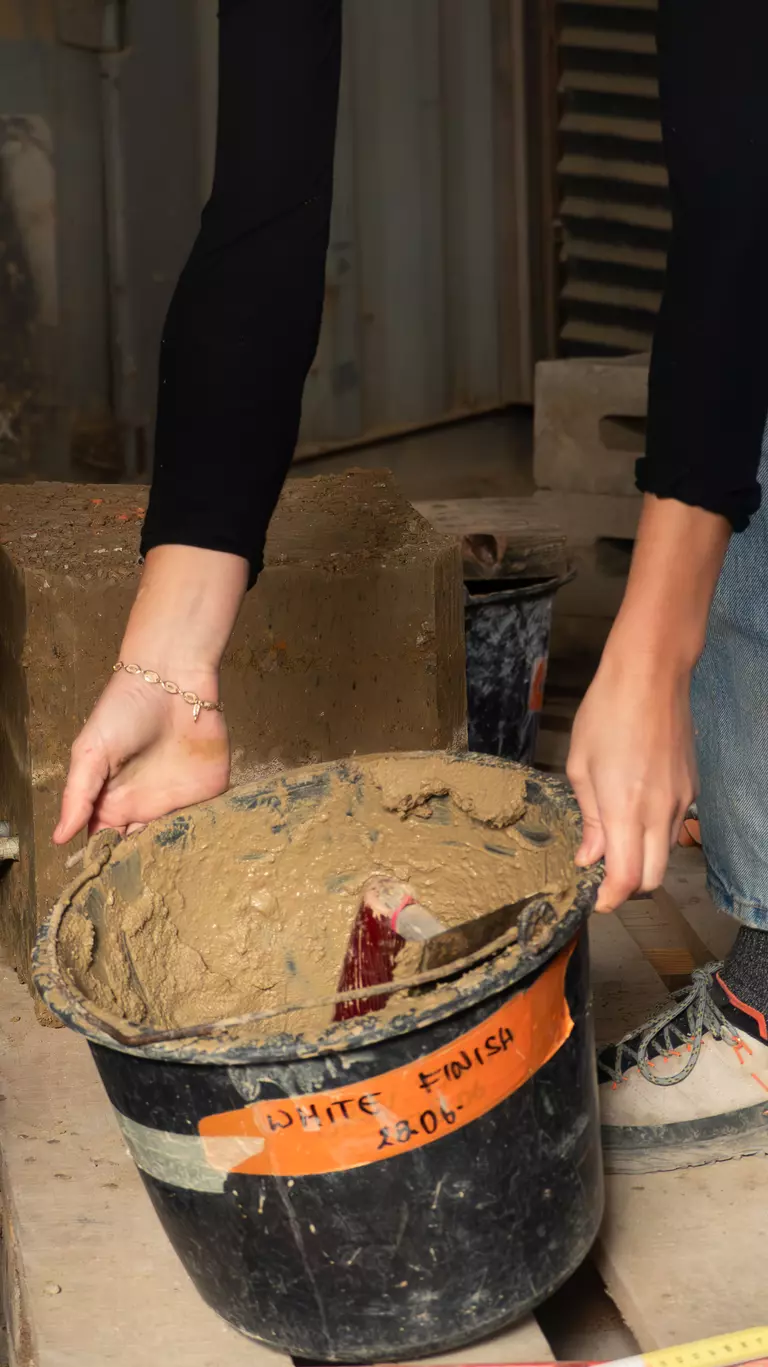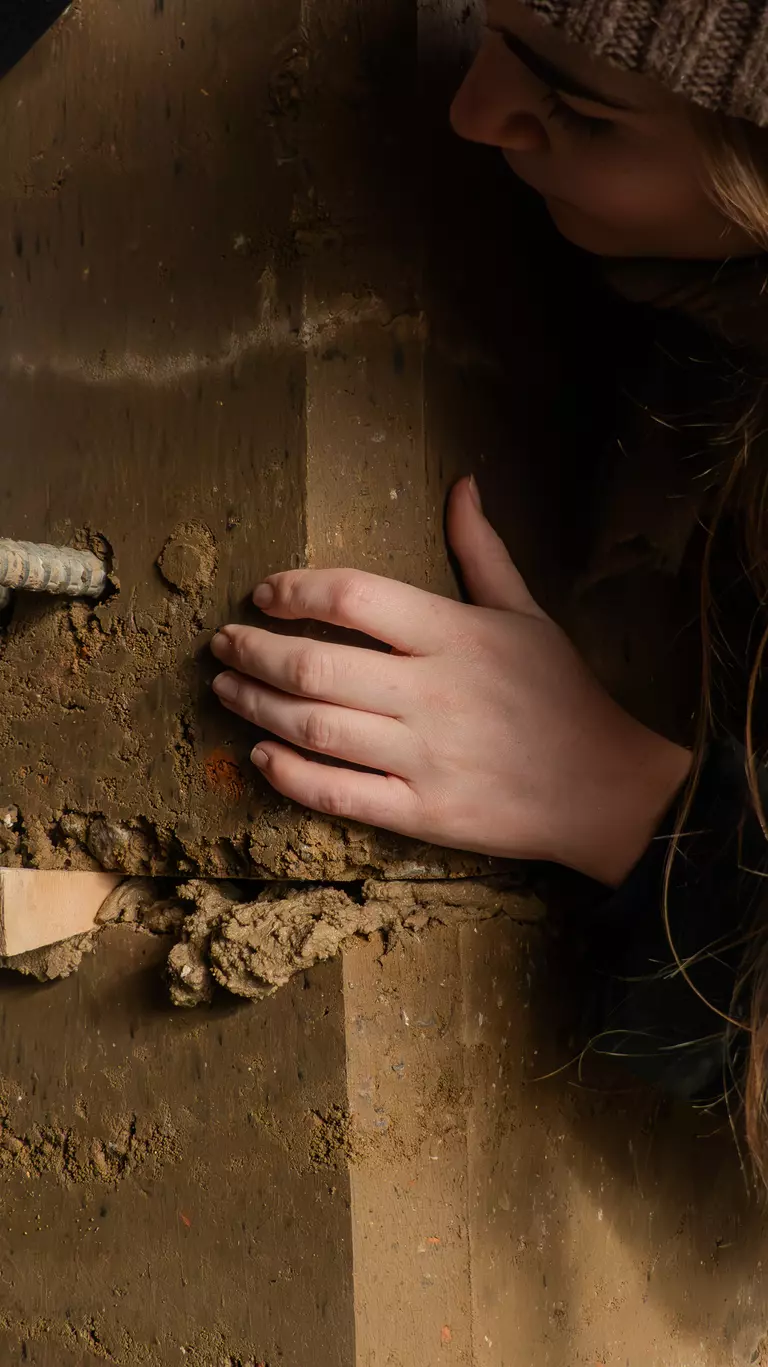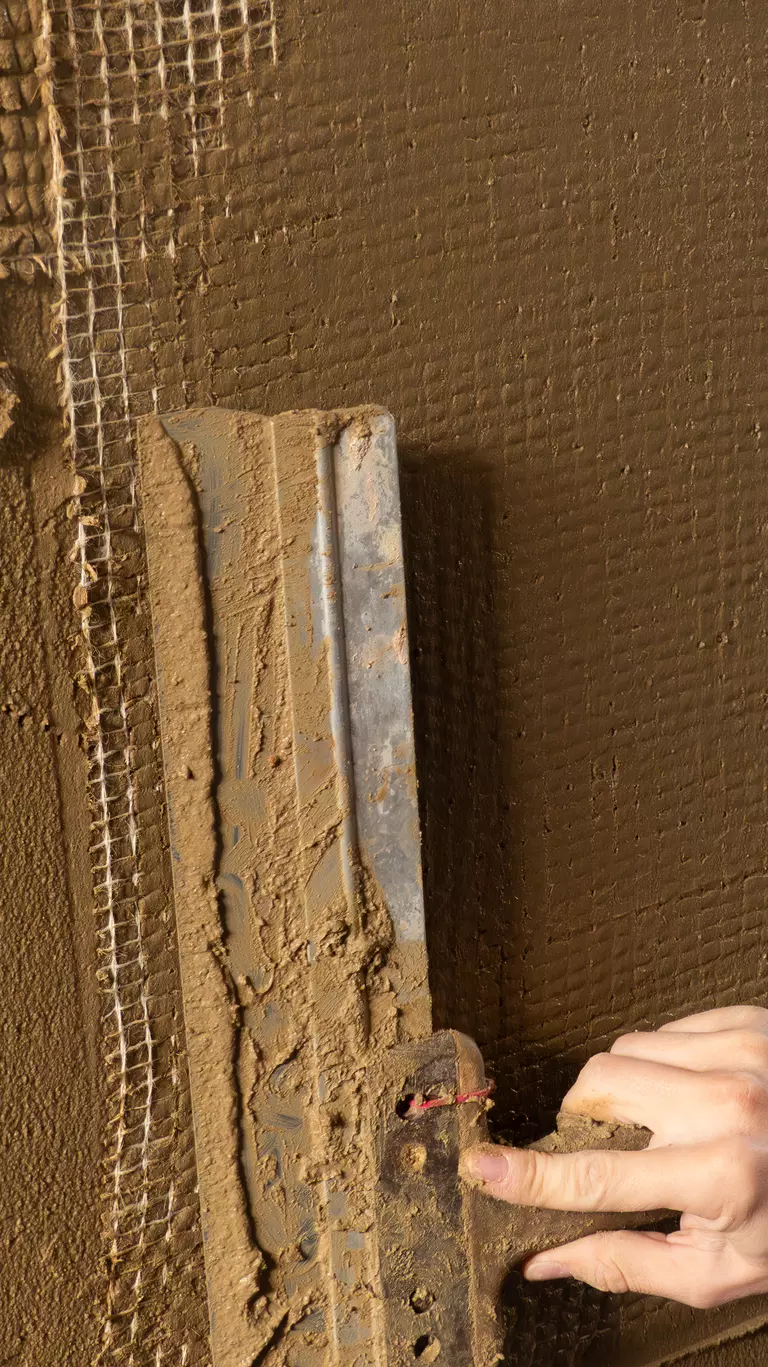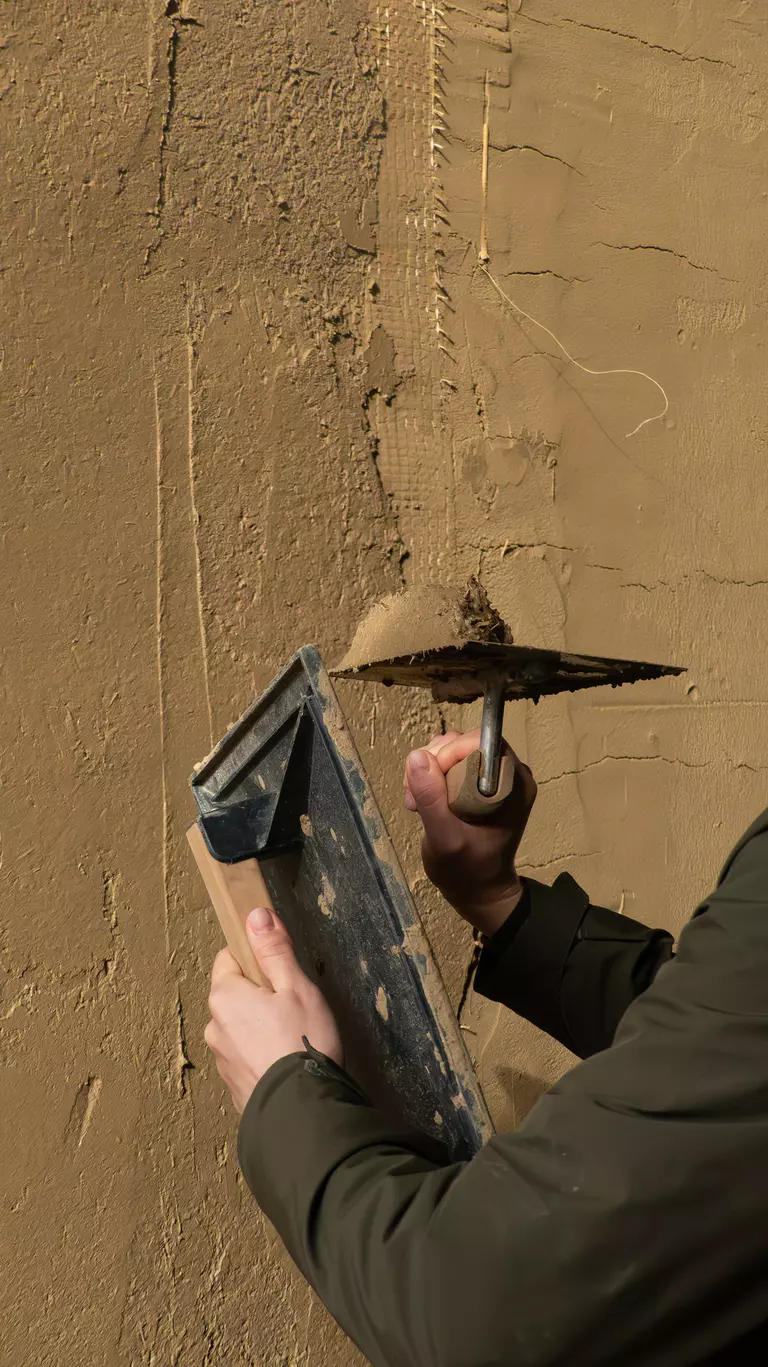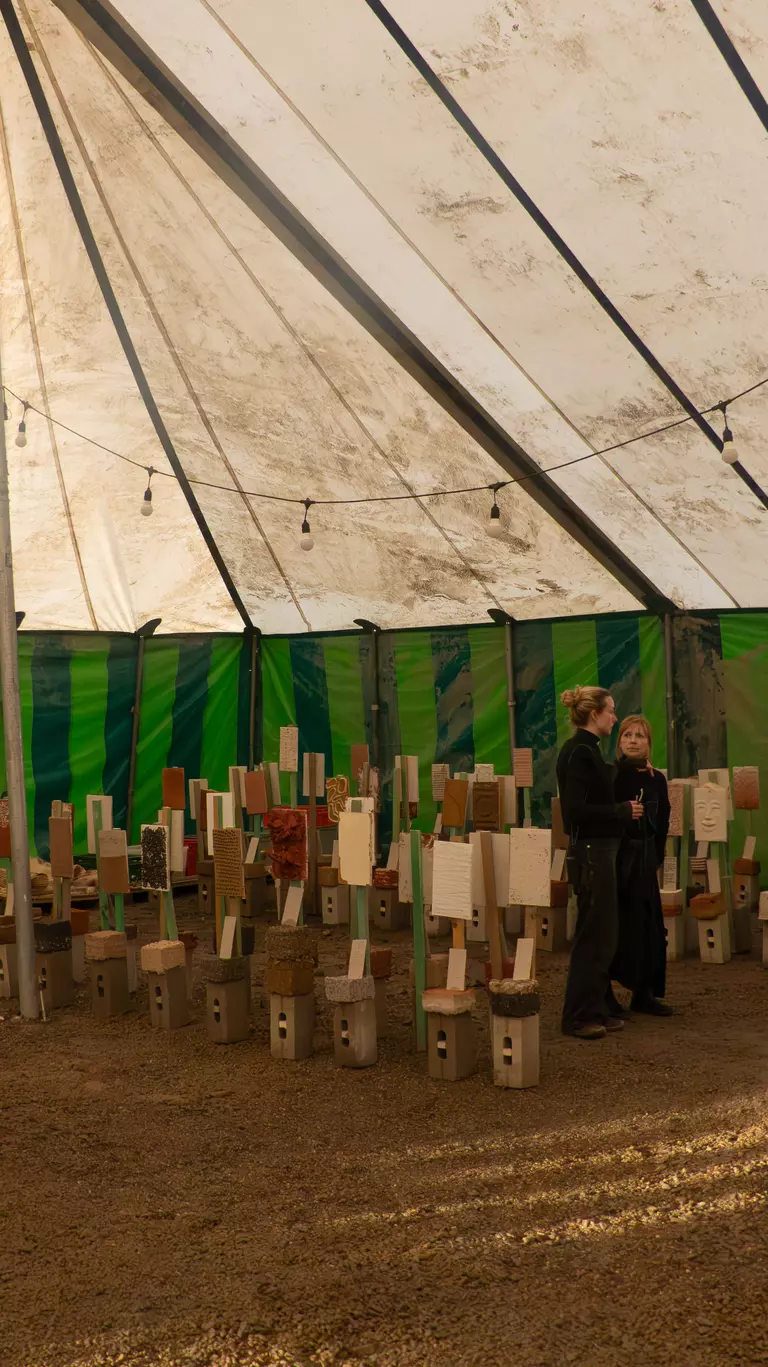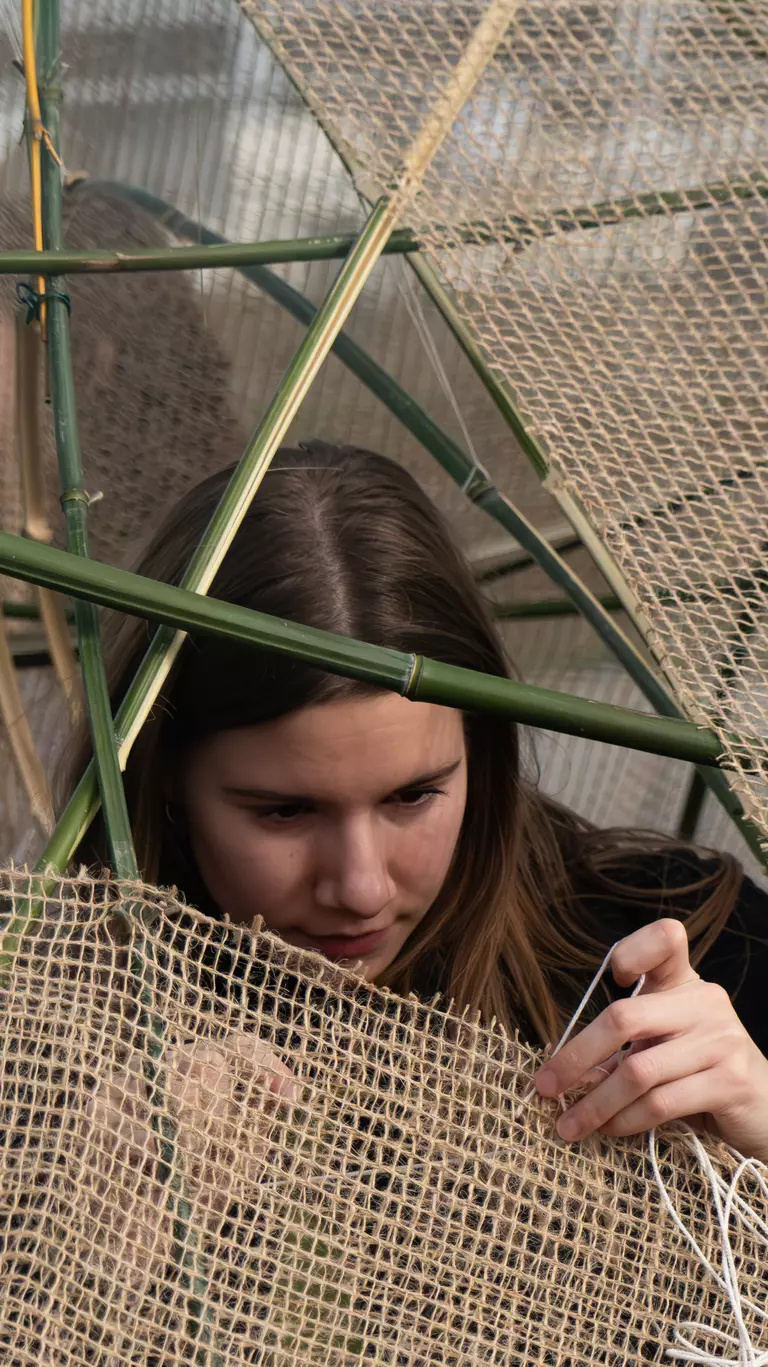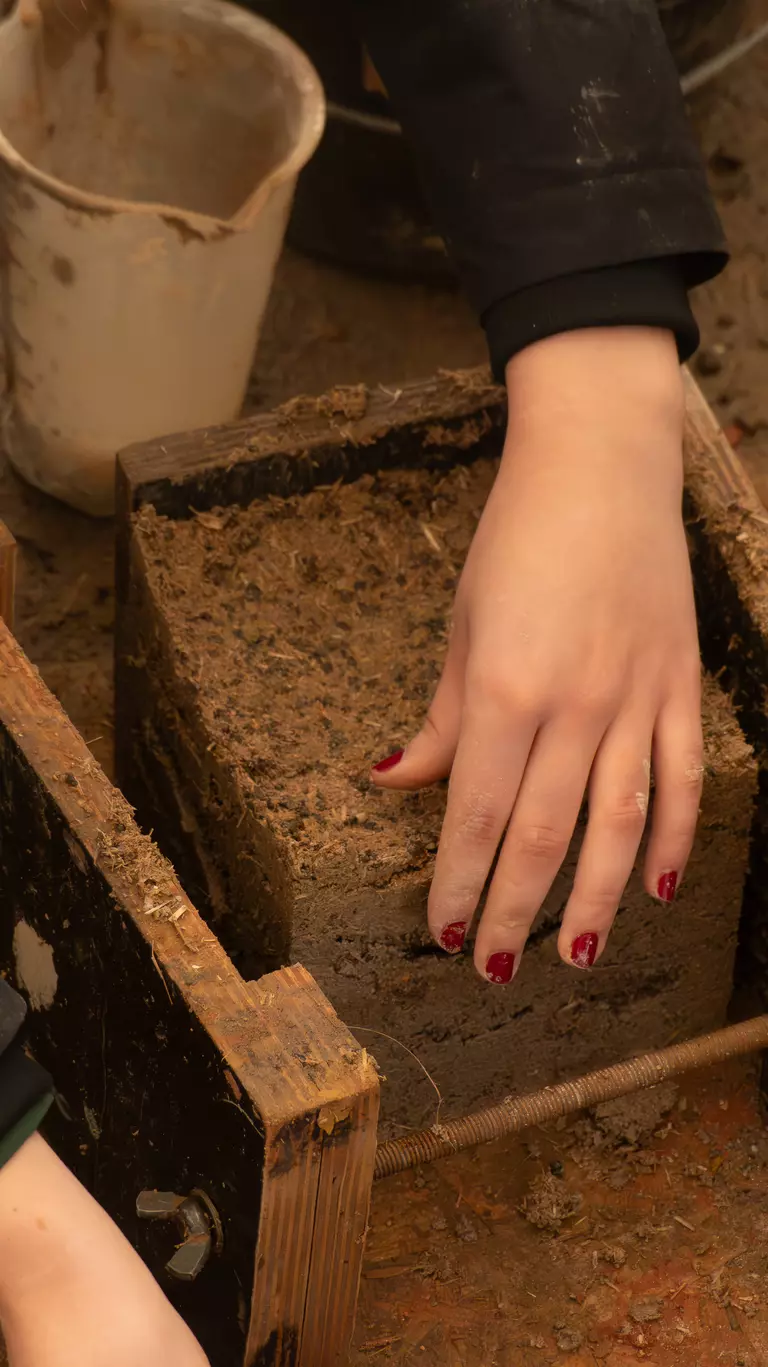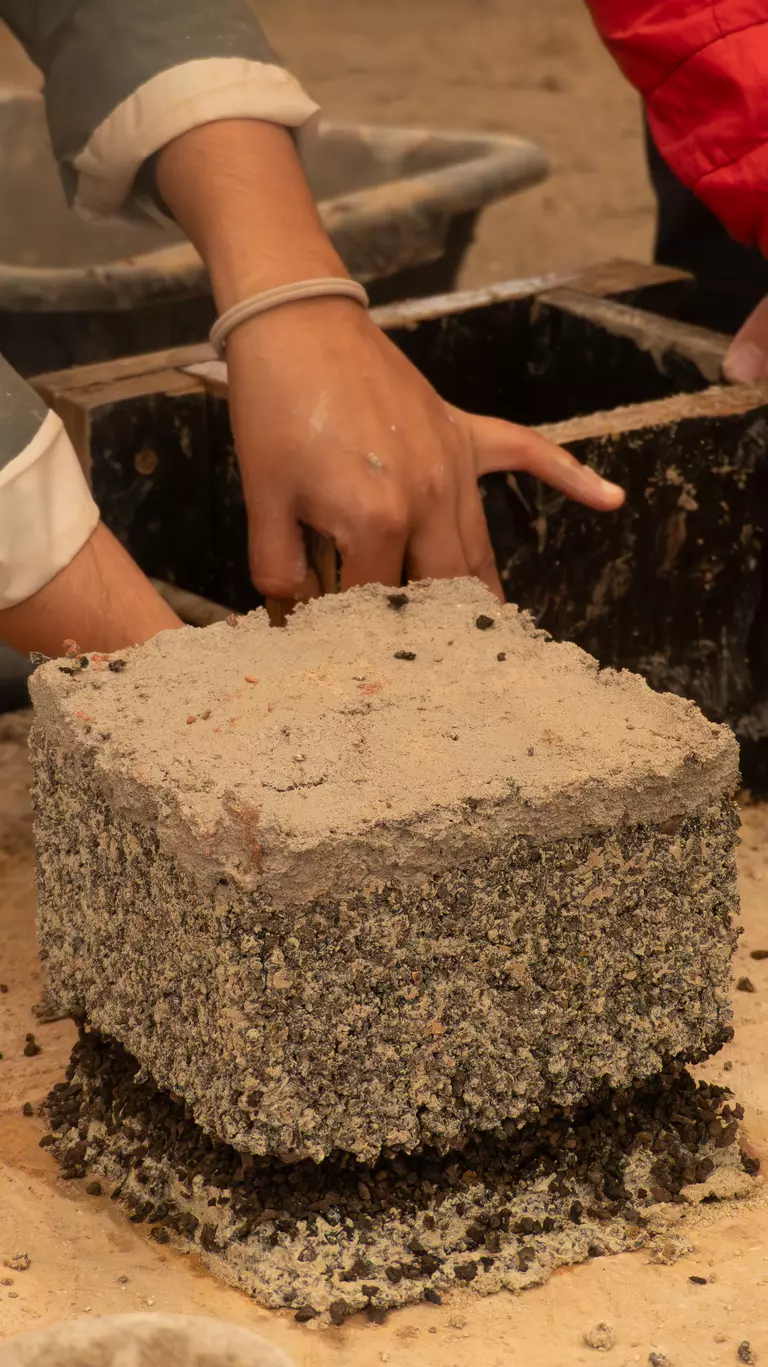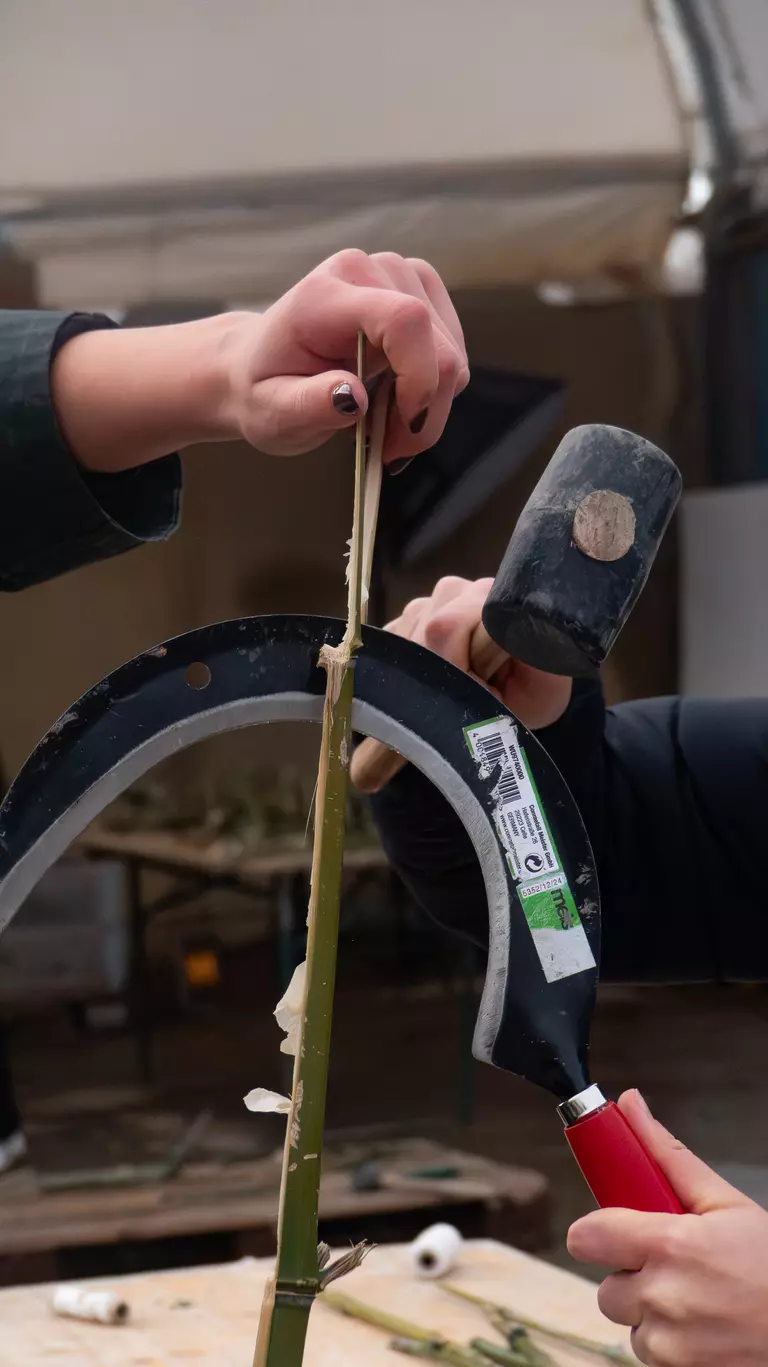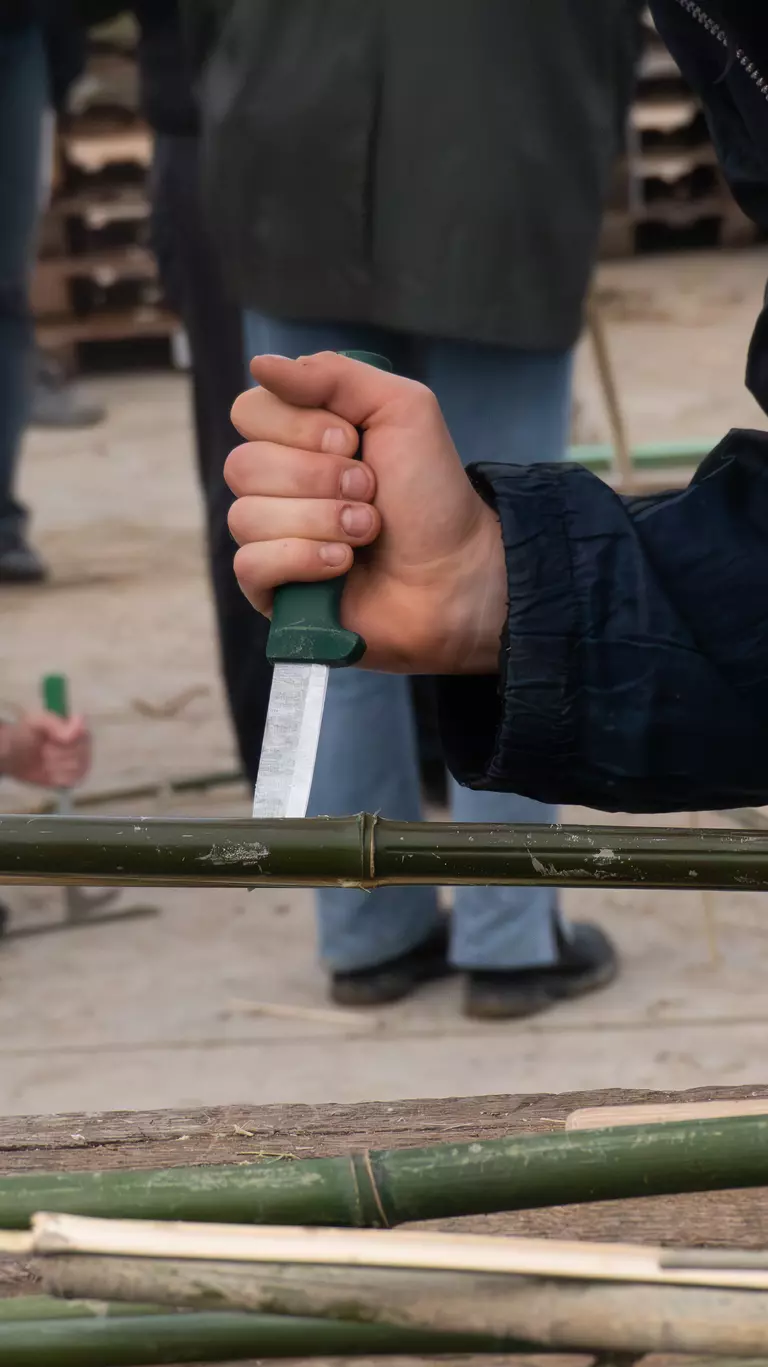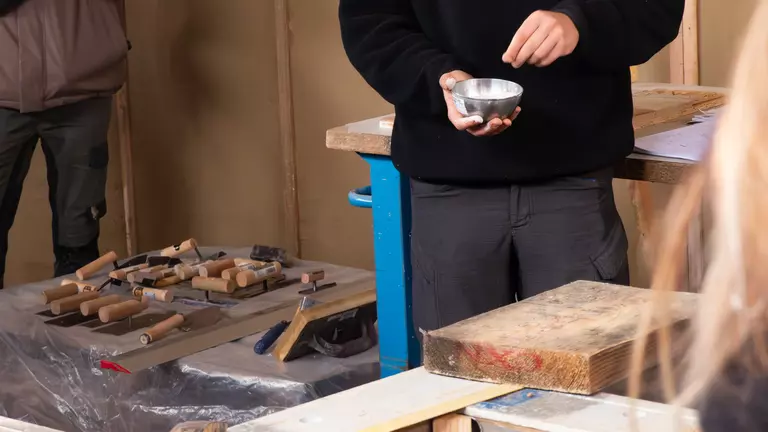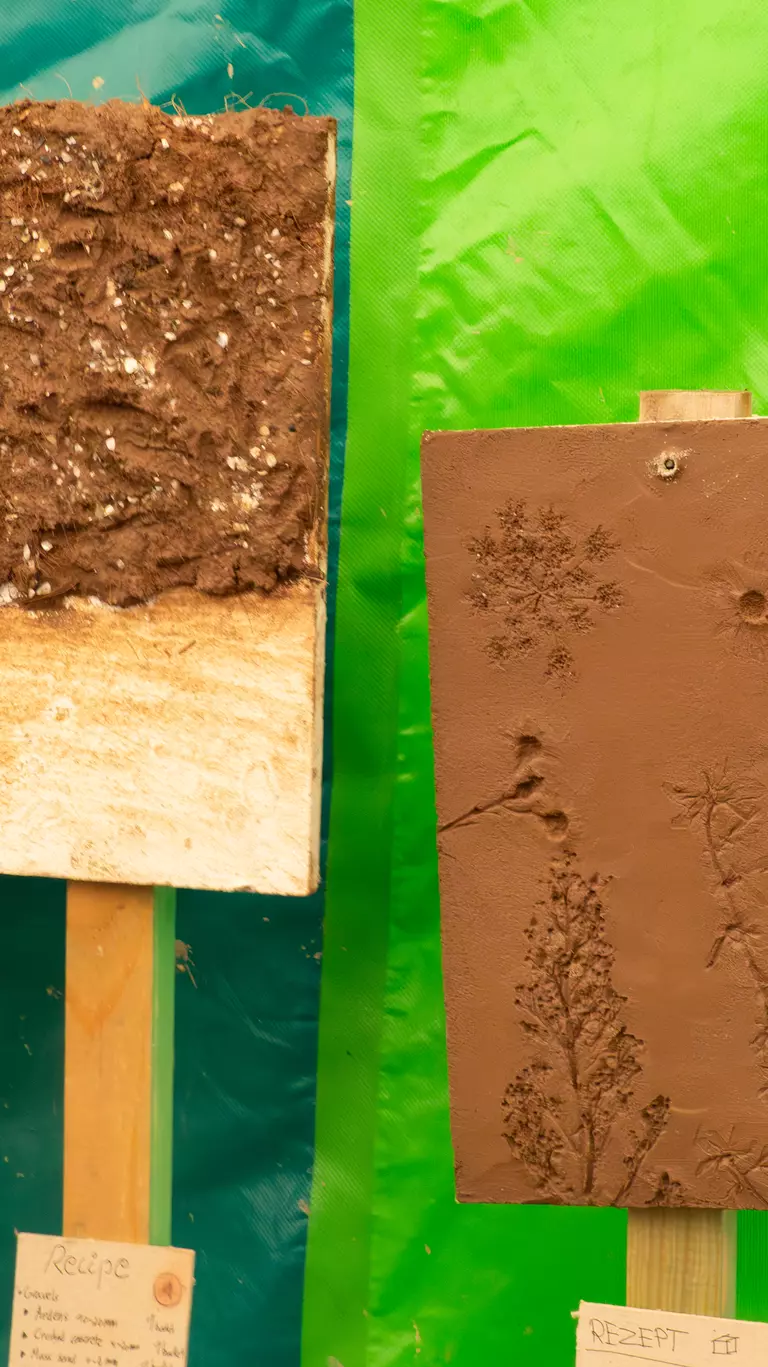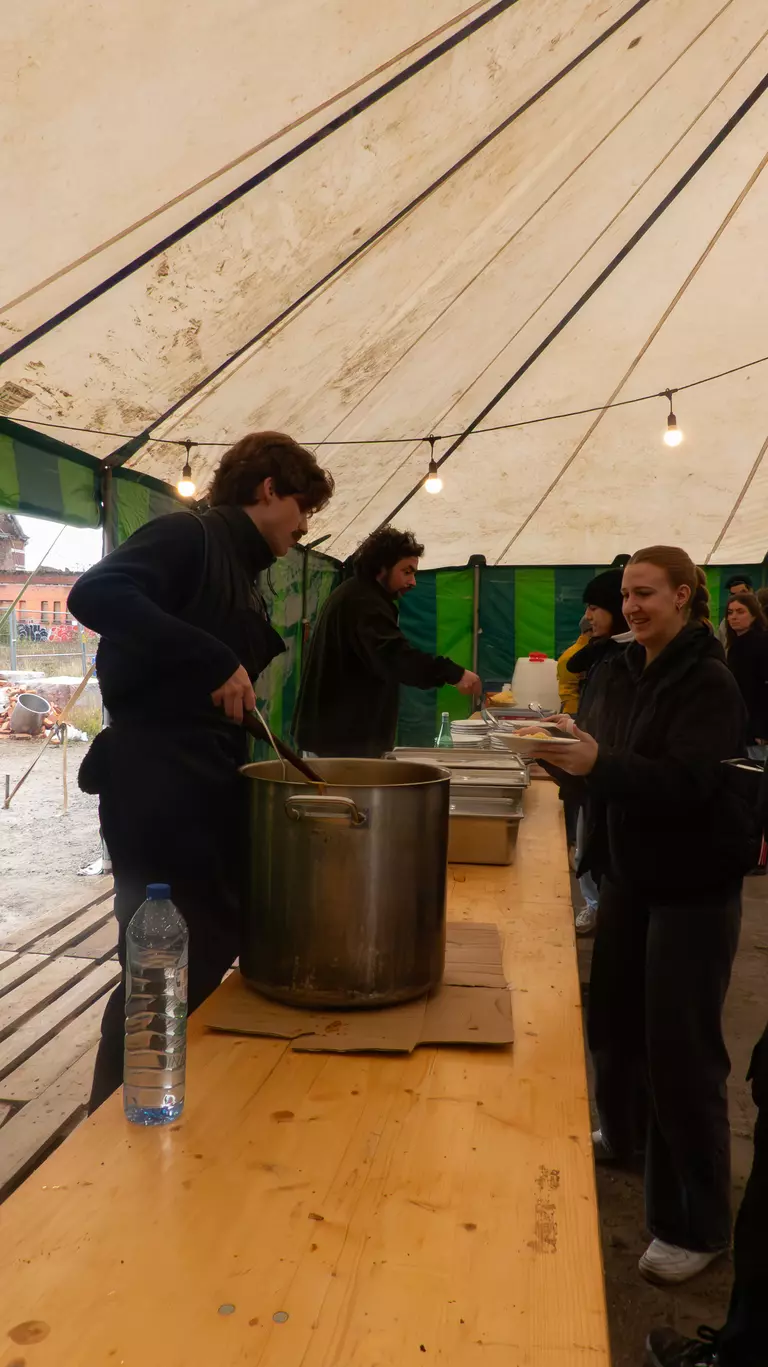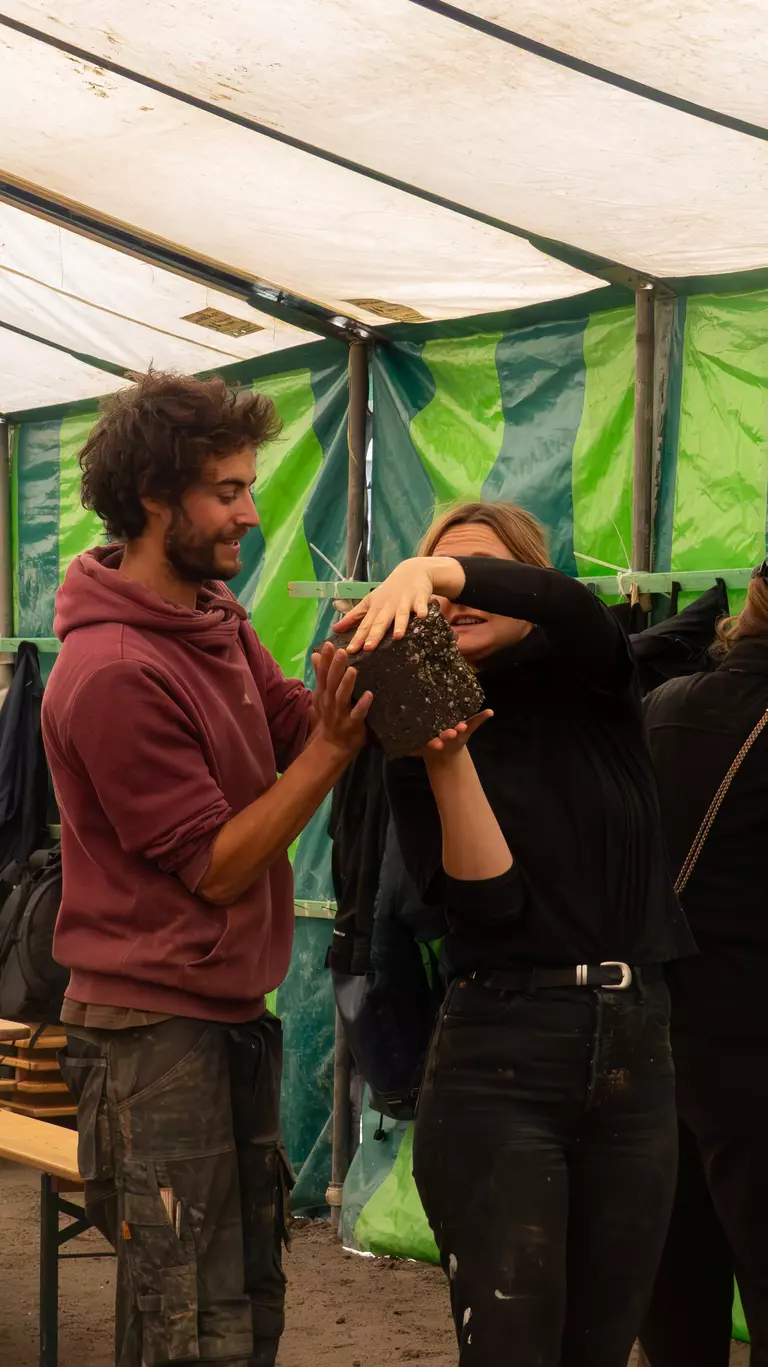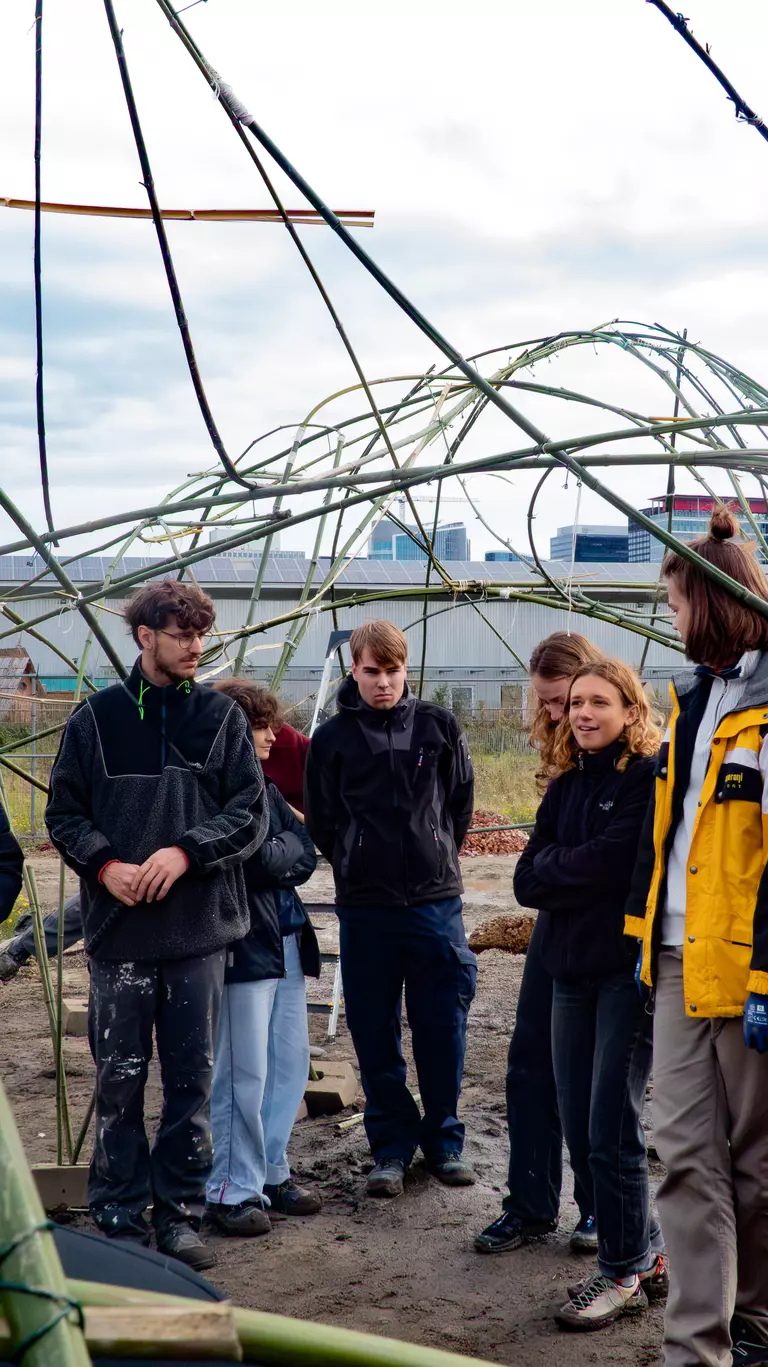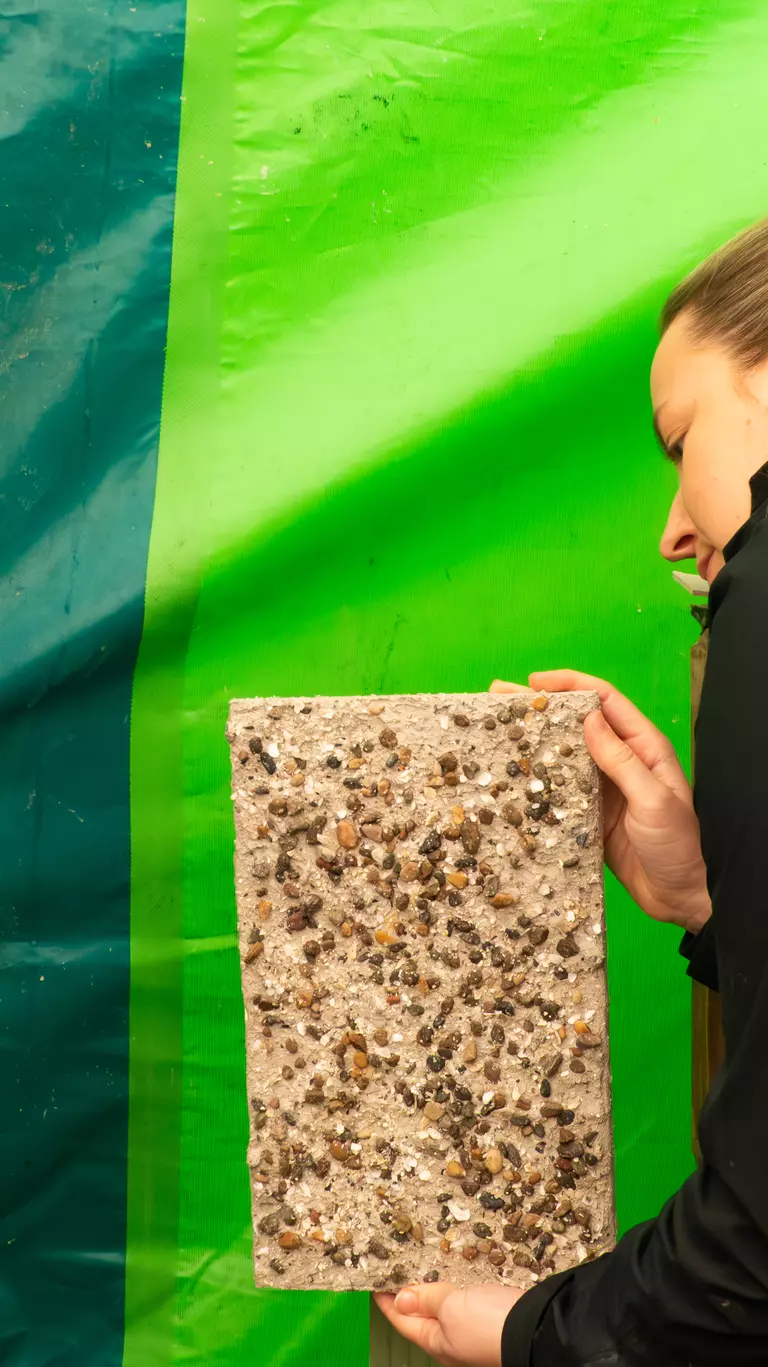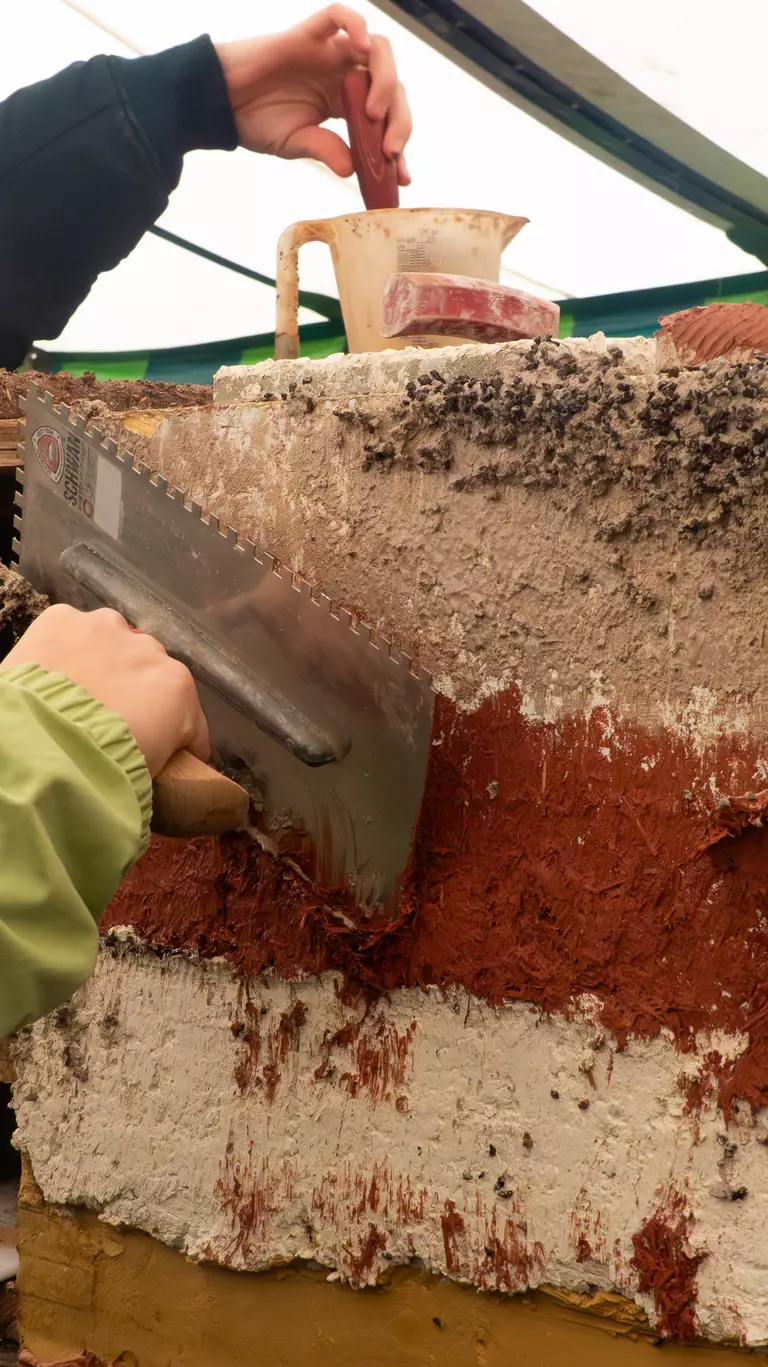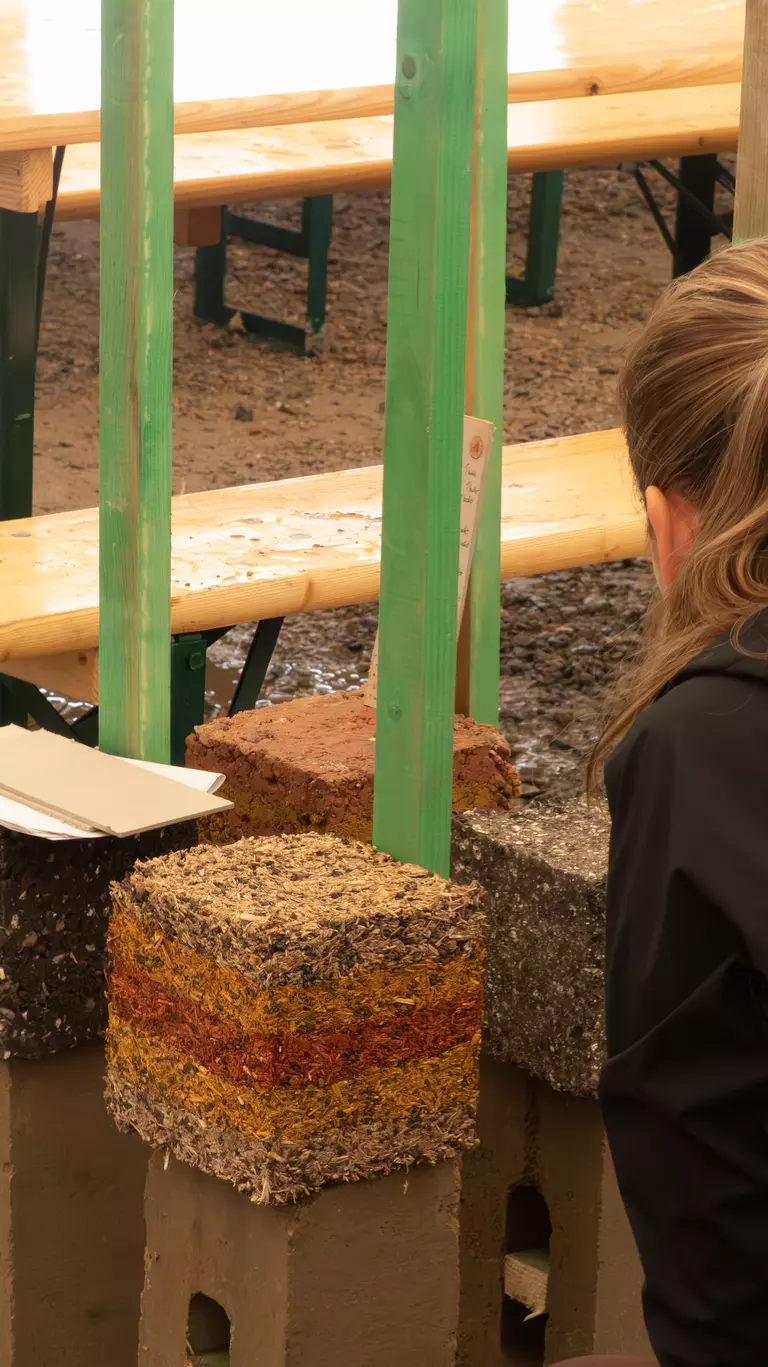- 28.10.25 31.10.25
October School 2025
The October School 2025 was an intensive, four-day event in Brussels that brought together 120 students, teachers, and practitioners to explore regenerative architecture. This collaborative project involved participants from five European universities: KU Leuven, UHasselt, RWTH Aachen, the Estonian Academy of Arts, and TU Wien.
The program's core mission was to rethink how we learn and build, with a focus on taking responsibility for the materials we use. The event was structured to connect the physical making of hands-on workshops with the broader questions that shape the future of the discipline.
Workshop Program: Learning Through Making
The primary focus of the October School was its practical workshops and ateliers, designed to immerse students in the application of bio- and geo-sourced materials.
Full-Scale Construction
Participants were integrated into the "reality of a full-scale construction site" to master project logistics and synergy.
- Rammed Earth: production of a structural rammed earth pillar, blending traditional, hands-on methods with prefabrication techniques for massive blocks.
- Plaster: dual experiments with plaster application, ranging from mechanised base layers to traditional finishing techniques.
LAB Ateliers
Provided a material library of fibres, cork, clay, sand, and crushed bricks, allowing students to test and explore different formulations for new sample blocks and plasters.
PROTO Ateliers
Focused on "translating natural materials into structural systems" through direct experimentation. Participants "bypassed digital tools" to gain embodied knowledge of structural behavior, culminating in the collaborative assembly of a final dome structure.
Round Table Discussions
To support the practical work, the October School hosted four round table discussions. These sessions bridged the gap between the hands-on building and the systemic challenges of implementing sustainable architecture.
- Round Table 1: Responsible architecture - new types of practice
- Round Table 2: Changing material regime
- Round Table 3: Scaling up sustainable practices
- Round Table 4: Teaching through making
This project was made possible by the dedicated contributions of our tutors and guest lecturers: Thomas Amann, Alice Babini, Romain Deboulle, Tina Gregorič, Guillaume Habert, Maria Helena Luís, Elsa Marchal, Alexia Ménec, Barbara Oelbrandt, Hanna Segerkrantz, and Theresa Zschäbitz.
Special thanks to Jean Souviron for moderating the debates and Bruxelles Environnement for welcoming participants and more during the open round tables.
Co-financed by Erasmus+, a programme of the European Union.
